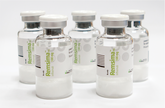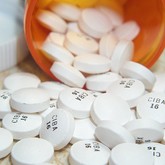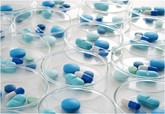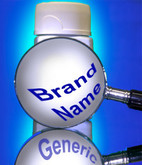Biosimilars
Brazil approves first monoclonal antibody follow-on biological
Brazil’s medicines agency, the Brazilian Health Surveillance Agency (Agência Nacional de Vigilância Sanitária, ANVISA), announced on 27 April 2015 that it had approved its first follow-on biological medicine through ‘the development by comparability’.
Considerations when promoting generics prescribing in the US
Sarpatwari and co-authors investigate the legal and ethical consideration for promoting generics prescribing in the US and how this might apply to biosimilars [1].
Australian guide to biosimilars
Australia’s Generic Medicines Industry Association (GMiA) has launched a Guide to Biosimilars. The guide is designed to provide a concise, ‘user-friendly’ reference on the subject for patients, clinicians, pharmacists, politicians and policymakers.
Adalimumab biosimilar meets primary endpoints in phase I study
US biotech company Oncobiologics announced on 12 February 2015 that ONS-3010, its adalimumab biosimilar candidate, met the primary endpoints in its first clinical study.
WHO receives positive feedback on BQ for biologicals
According to the World Health Organization’s executive summary of its 59th Consultation on International Nonproprietary Names (INNs) for Pharmaceutical Substances, almost half of comments on its proposed biological qualifier (BQ) for naming biologicals were positive.
Promoting generics prescribing in the US
Sarpatwari and co-authors discuss physician-centered strategies used to promote generics prescribing in the US and how such strategies might apply to biosimilars [1].
Samsung adds 48-week extension to SB4 biosimilar study
Samsung Bioepis has added a 48-week extension to the phase III study of its candidate etanercept biosimilar SB4 in rheumatoid arthritis patients.
Generics group established first voice for biosimilars in Canada
The Canadian Generic Pharmaceutical Association (CGPA), which represents Canada’s generics industry, announced on 7 April 2015 that it had set up a new CGPA Biosimilars Board, with Mr Michel Robidoux, President and General Manager of Sandoz Canada, as its inaugural Chair.
Arguments for same INN for biosimilars presented at WHO meeting
The World Health Organization recently held its 60th Consultation on International Nonproprietary Names (INN) for Pharmaceutical Substances. At the meeting the issue of naming of biologicals, including biosimilars was once again discussed.
Substitution of biosimilars in the US
The approval of the first biosimilar in the US, Zarxio (filgrastim), on 6 March 2015 [1], prompted Sarpatwari and co-authors to investigate how biosimilars might be substituted for originator biologicals in the US [2].













